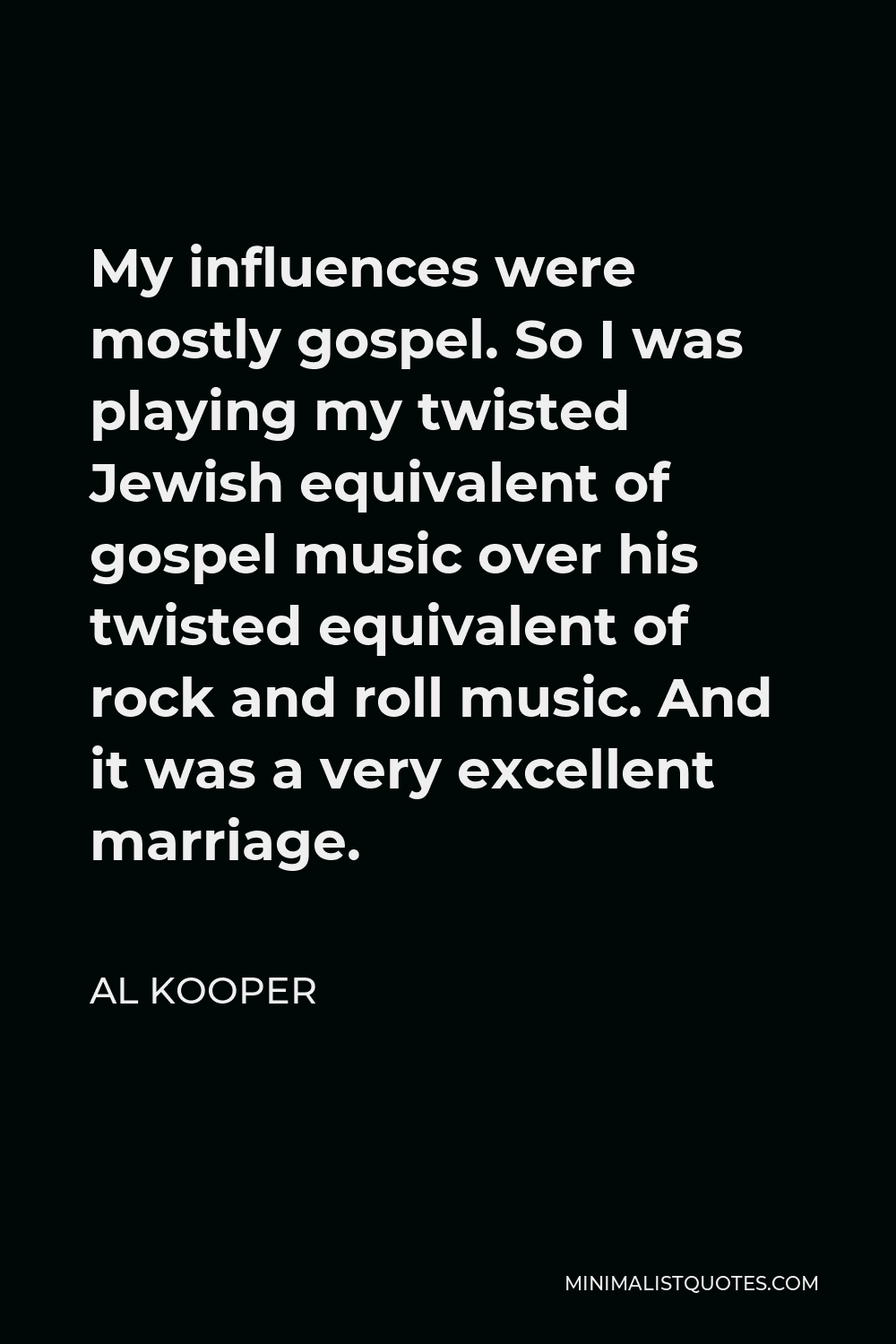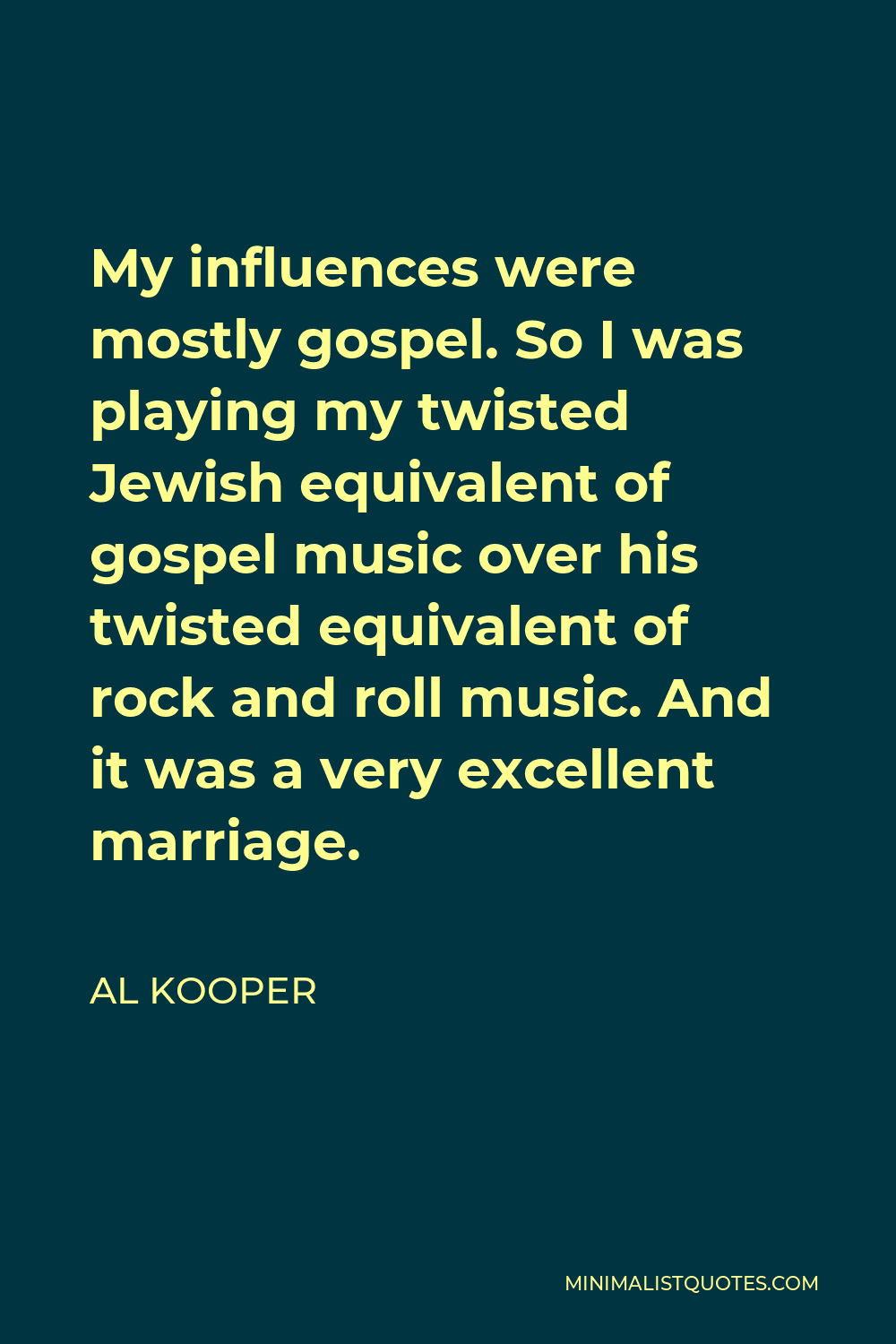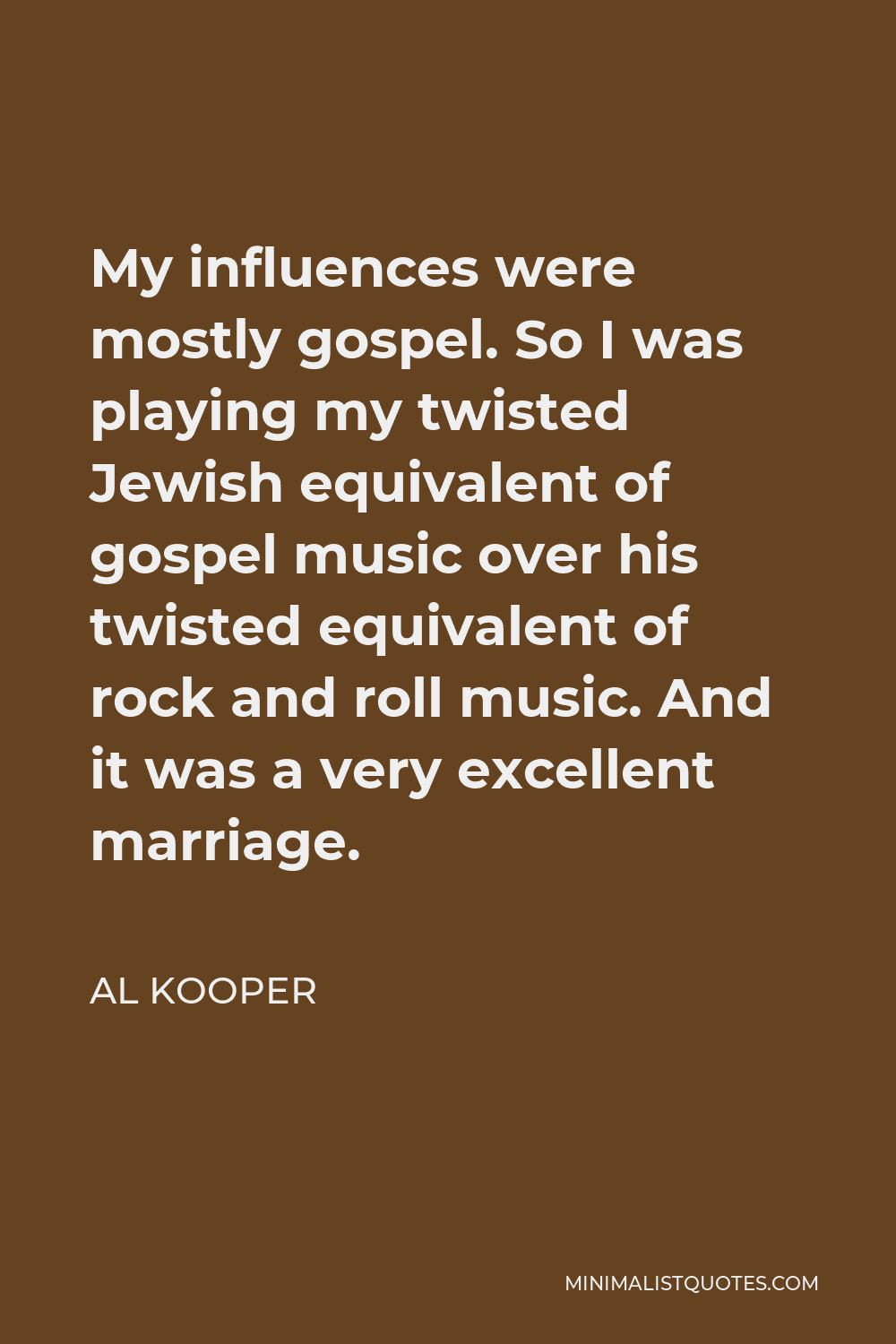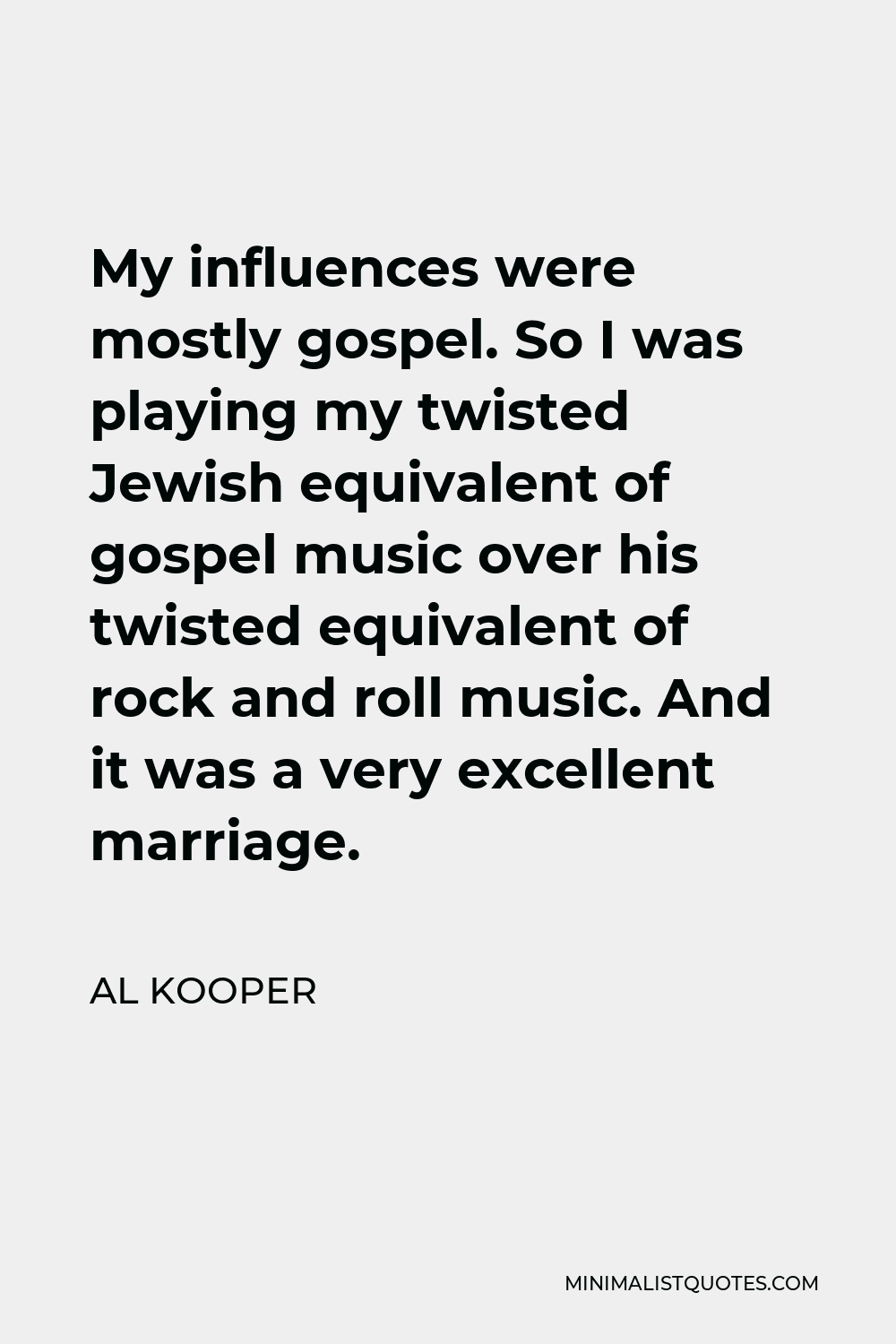The “Highway 61” album [of Bob Dylan] was produced by Bob Johnston if I’m not incorrect. And Bob Johnston was an entirely different producer than Tom Wilson.
AL KOOPERMy influences were mostly gospel. So I was playing my twisted Jewish equivalent of gospel music over his twisted equivalent of rock and roll music. And it was a very excellent marriage.
More Al Kooper Quotes
-





![Al Kooper Quote - The “Highway 61” album [of Bob Dylan] was produced by Bob Johnston if I’m not incorrect. And Bob Johnston was an entirely different producer than Tom Wilson.](https://minimalistquotes.com/wp-content/uploads/2022/07/the-highway-61-album-of-bob-dylan-was-produced-by--683x1024.jpg)

-





![Al Kooper Quote - The first generation from the ’50s that were in 1650 [Broadway] were pretty much all crooks,](https://minimalistquotes.com/wp-content/uploads/2022/07/the-first-generation-from-the-50s-that-were-in-165-683x1024.jpg)

The first generation from the ’50s that were in 1650 [Broadway] were pretty much all crooks,
AL KOOPER -





![Al Kooper Quote - I think it was Columbia politics, Columbia Records politics that, that, Tom Wilson left [Bob Dylan] after “Like A Rolling Stone”.](https://minimalistquotes.com/wp-content/uploads/2022/07/i-think-it-was-columbia-politics-columbia-records--683x1024.jpg)

I think it was Columbia politics, Columbia Records politics that, that, Tom Wilson left [Bob Dylan] after “Like A Rolling Stone”.
AL KOOPER -





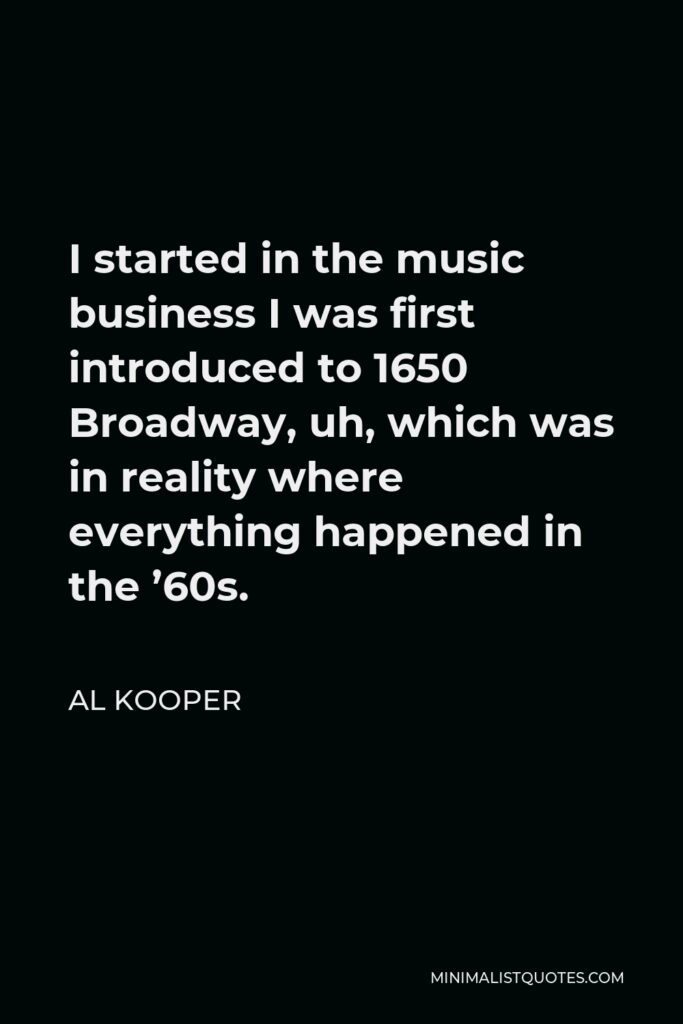

I started in the music business I was first introduced to 1650 Broadway, uh, which was in reality where everything happened in the ’60s.
AL KOOPER -





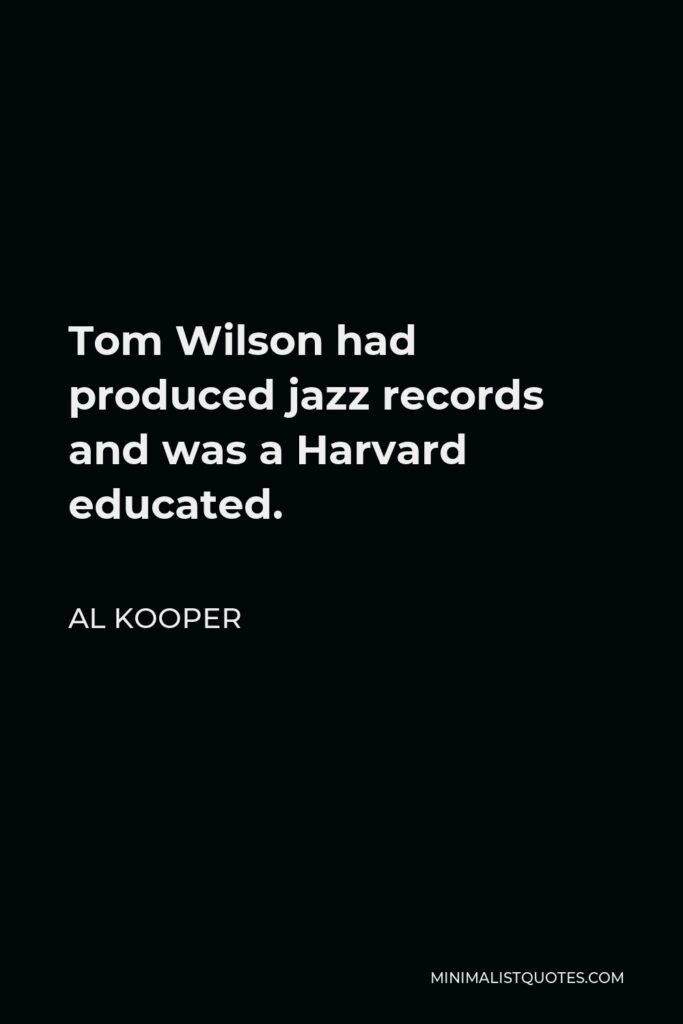

Tom Wilson had produced jazz records and was a Harvard educated.
AL KOOPER -





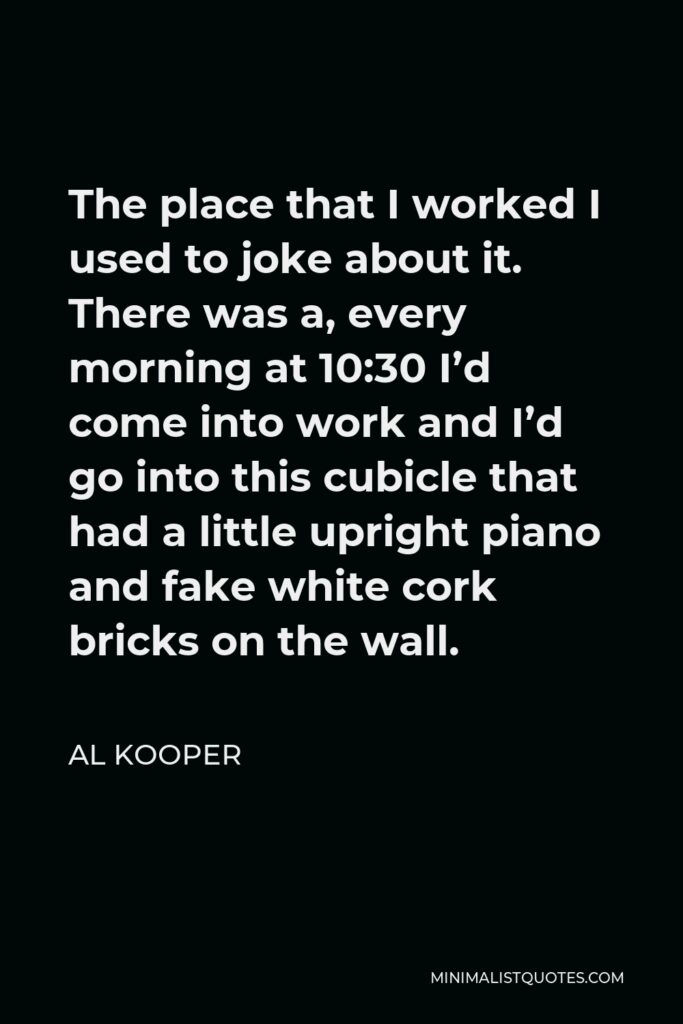

The place that I worked I used to joke about it. There was a, every morning at 10:30 I’d come into work and I’d go into this cubicle that had a little upright piano and fake white cork bricks on the wall.
AL KOOPER -







Bob Dylan said to the producer, turn up the organ. And Tom Wilson said, oh man, that guy’s not an organ player. And Dylan said.
AL KOOPER -





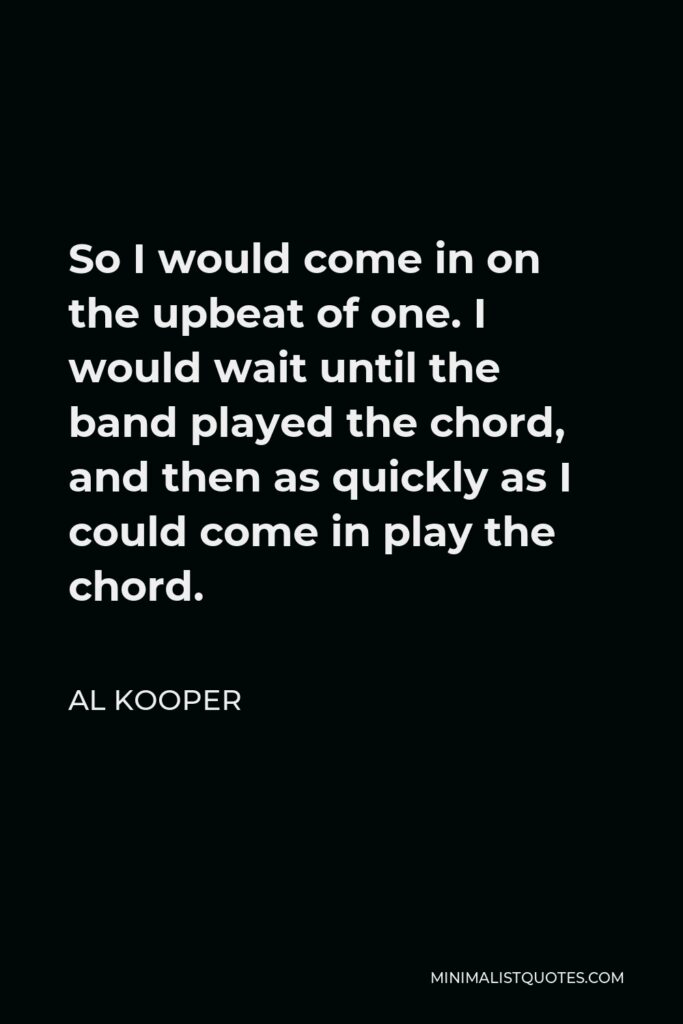

So I would come in on the upbeat of one. I would wait until the band played the chord, and then as quickly as I could come in play the chord.
AL KOOPER -





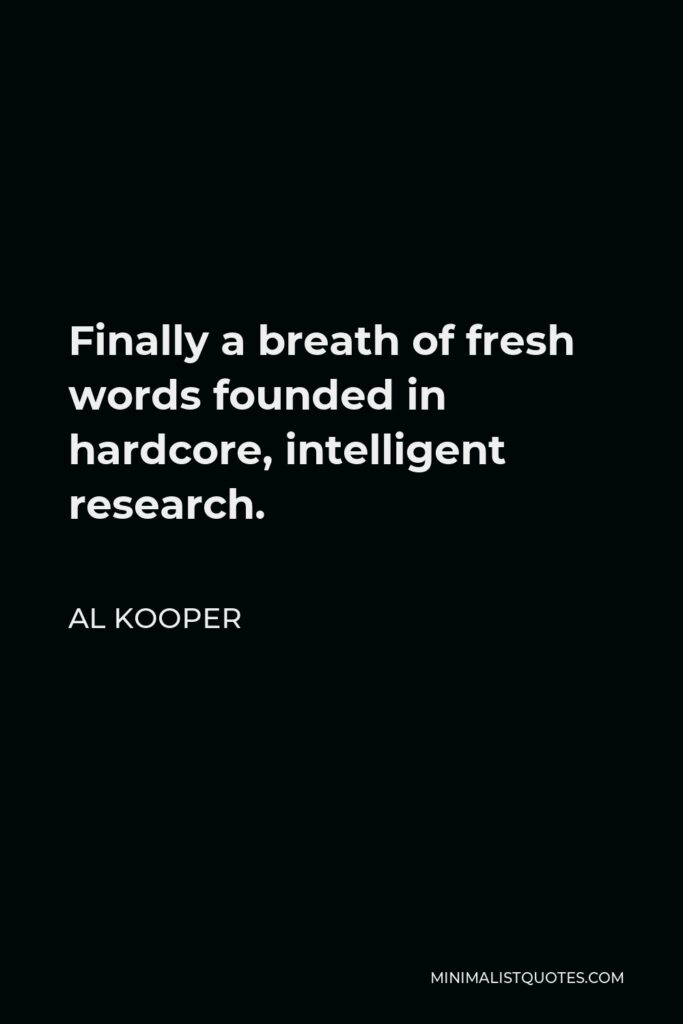

Finally a breath of fresh words founded in hardcore, intelligent research.
AL KOOPER -





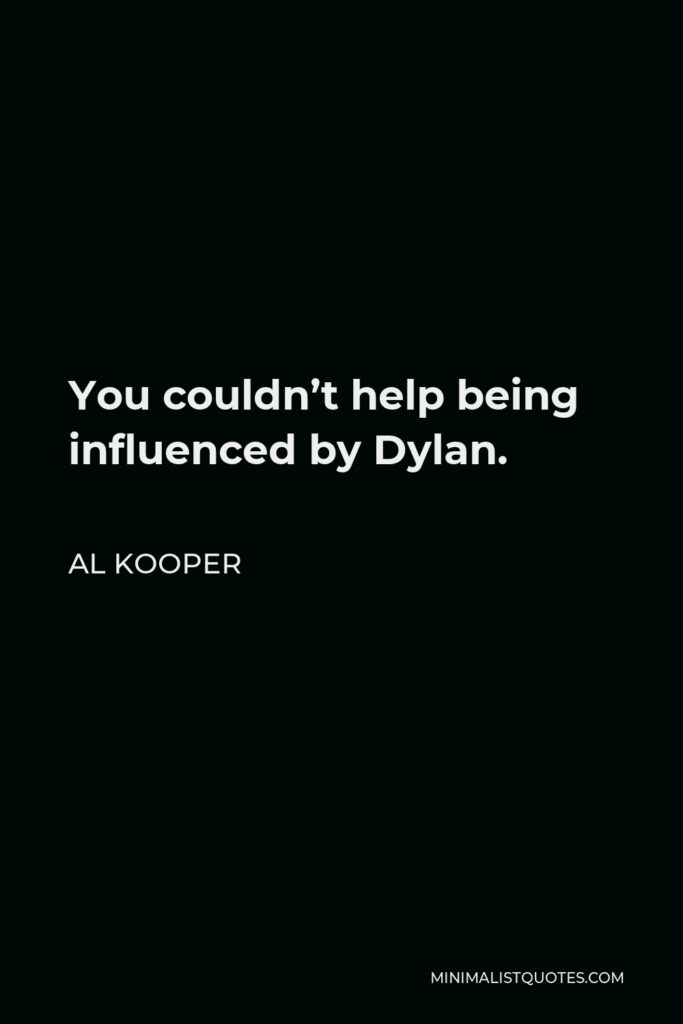

You couldn’t help being influenced by Dylan.
AL KOOPER -





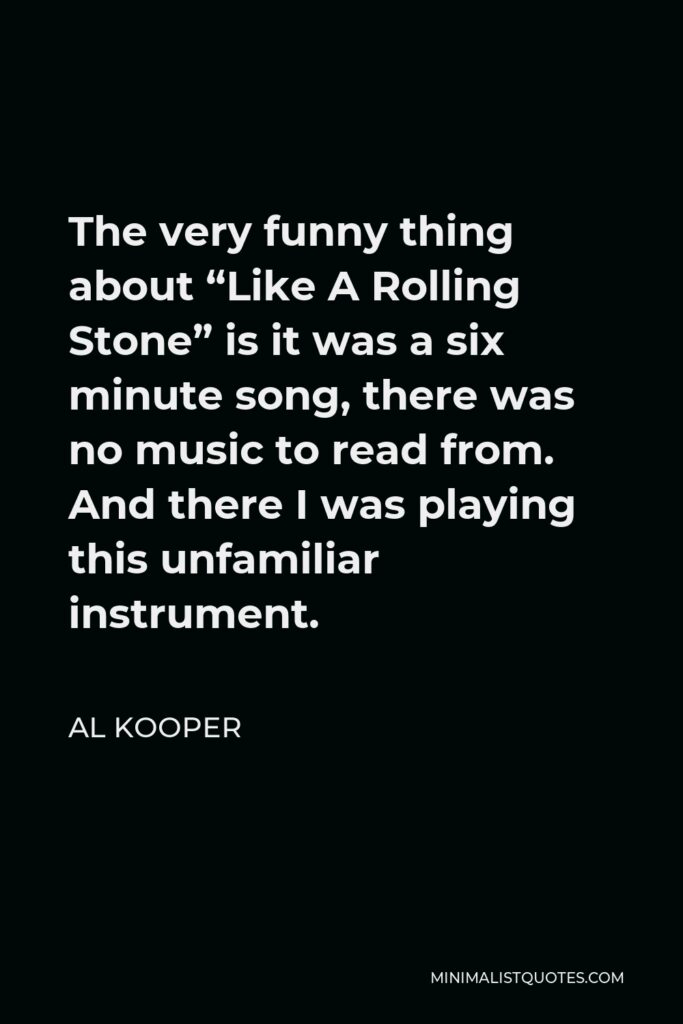

The very funny thing about “Like A Rolling Stone” is it was a six minute song, there was no music to read from. And there I was playing this unfamiliar instrument.
AL KOOPER -





![Al Kooper Quote - The [Bob] Dylan sessions were very disorganized, to say the least. I mean, the “Like A Rolling Stone” session I was invited by the producer to watch.](https://minimalistquotes.com/wp-content/uploads/2022/07/the-bob-dylan-sessions-were-very-disorganized-to-s-683x1024.jpg)

The [Bob] Dylan sessions were very disorganized, to say the least. I mean, the “Like A Rolling Stone” session I was invited by the producer to watch.
AL KOOPER -





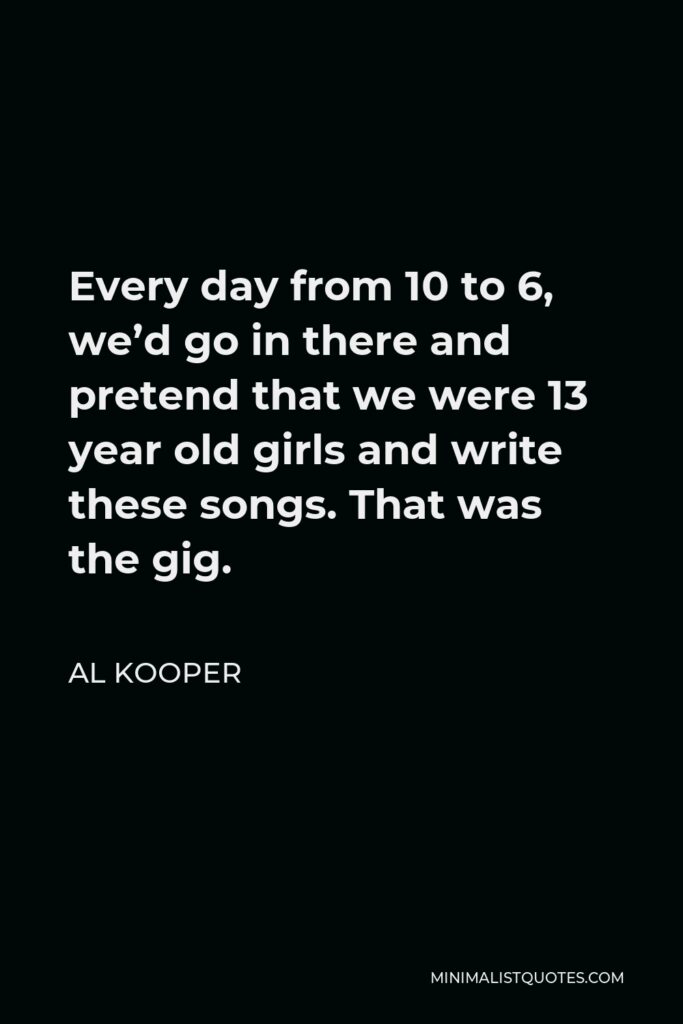

Every day from 10 to 6, we’d go in there and pretend that we were 13 year old girls and write these songs. That was the gig.
AL KOOPER -





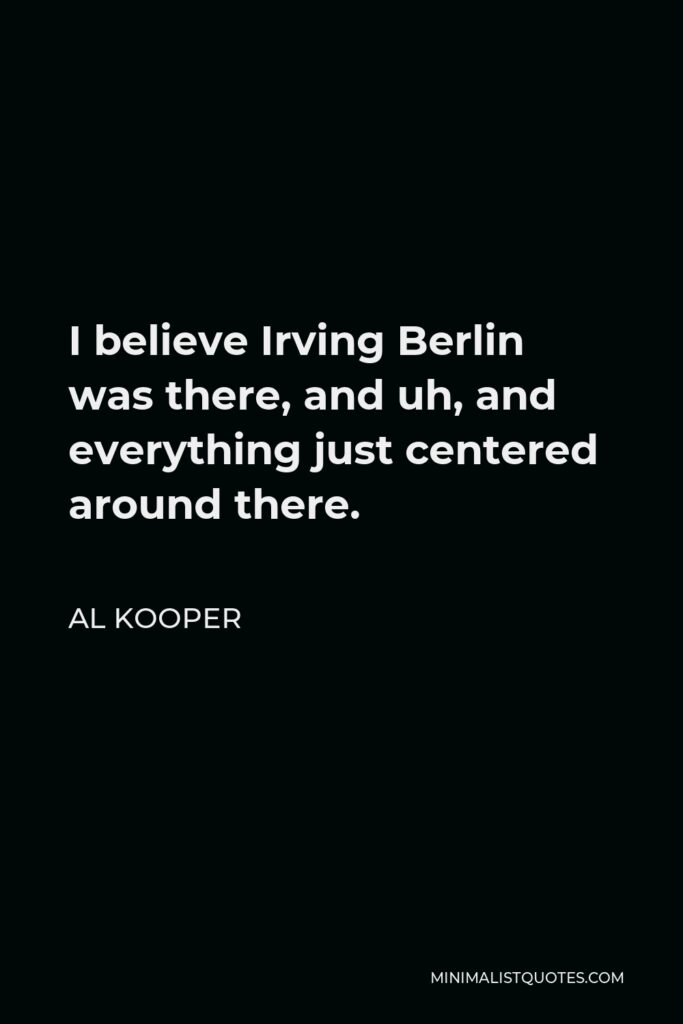

I believe Irving Berlin was there, and uh, and everything just centered around there.
AL KOOPER -





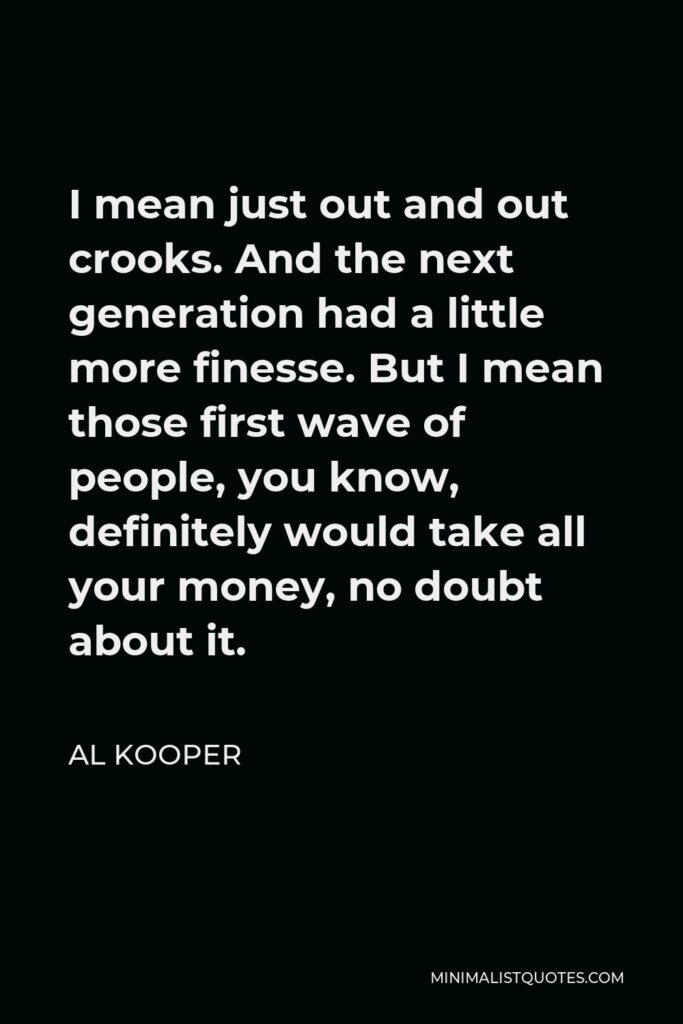

I mean just out and out crooks. And the next generation had a little more finesse. But I mean those first wave of people, you know, definitely would take all your money, no doubt about it.
AL KOOPER -





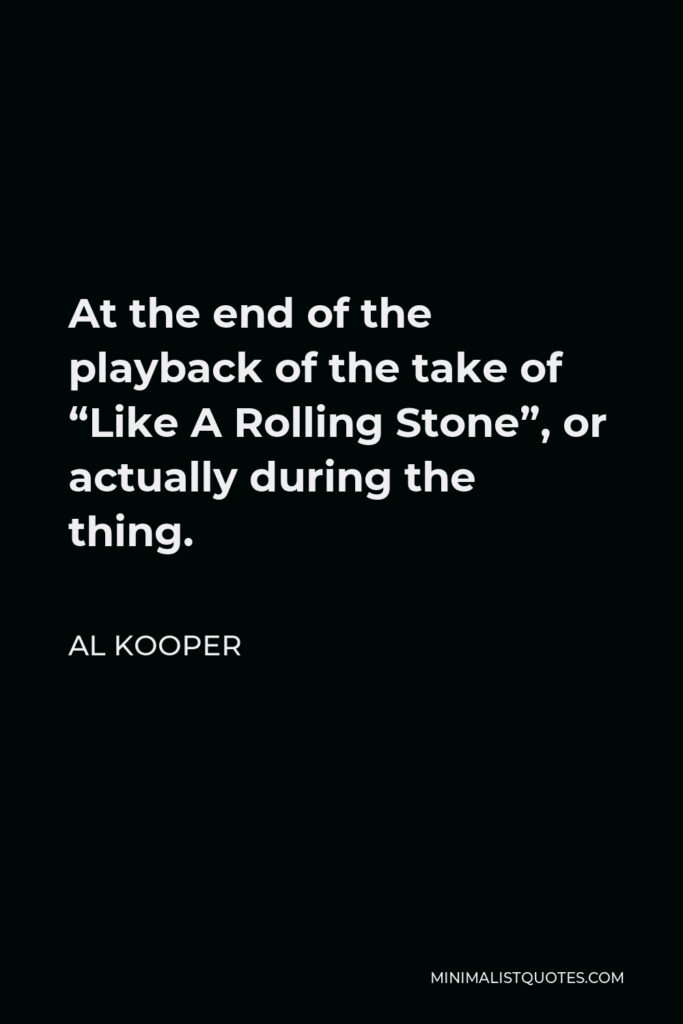

At the end of the playback of the take of “Like A Rolling Stone”, or actually during the thing.
AL KOOPER
